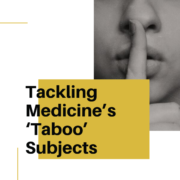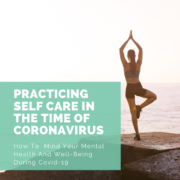Tackling Medicine’s ‘Taboo’ Subjects
Many people feel reticent to speak about their personal medical problems and for 3% of Americans, the problem is so extreme that they feel they cannot speak to a doctor at all. While most concerns lead to nothing serious, there will be occasions where an inability to speak up can lead to further problems. Empowering people to feel confident is important, and there are stages to breaking down the barriers to this.
Improving Awareness
One important step to creating a safer environment for speaking freely is through improving awareness over conditions. Simply put, there are almost no conditions that significant numbers of people won’t have experienced and that doctors won’t see as run of the mill. Diseases concerning sensitive parts of the body and, similarly, venereal disease, are a good example of this, with literally millions being diagnosed every year according to the CDC.Despite this, studies have shown that many men and women are reluctant to discuss their symptoms with doctors.Teaching awareness of these sorts of facts, and outlining how nobody is going to judge, is an important base layer.
Getting Information Out There
Part of the reasons some people will refuse to approach a doctor is through fear of diagnosis, or of invasive diagnostic processes. A great way to combat this is through having as much medical information available online as possible. Services like Mayo Clinic and Healthline have done a lot to aid this in recent years, but more work can be done, especially with more obscure conditions.
De-Stigmatizing
Most crucial is the process of de-stigmatizing all illness. Regardless of the cause, condition or outcome, illness remains the same and should be treated with sensitivity. The effect of stigma on illness is clearly felt. Anonymous polls of men by the NCHS found that 10% of men had experienced feelings of anxiety or depression, but less than half had sought treatment. This fear of stigma has led to men being 3.5x more at risk of suicide than women. De-stigmatizing is key, both for mental health and for conditions across the board.
Illness should never be something to be ashamed or scared of broaching the subject of. Instead, it should be something that people feel confident and free to talk about with a doctor, with no worry of abuse or shame. Through awareness, dispersing information and tackling stigma, society as a whole can create an environment in which people of all ages are happy to pursue their medical issues.
Resources:
https://health.usnews.com/health-news/patient-advice/articles/2014/07/01/how-to-overcome-extreme-fear-of-doctors










